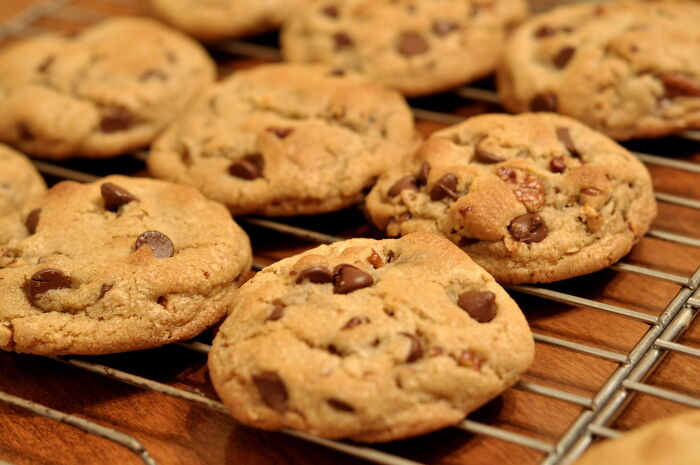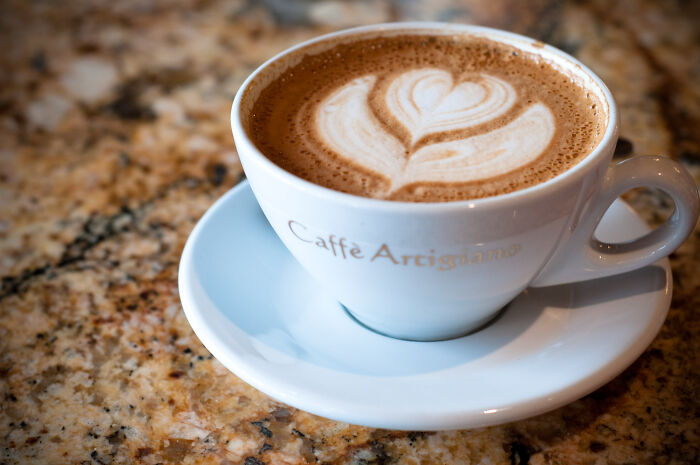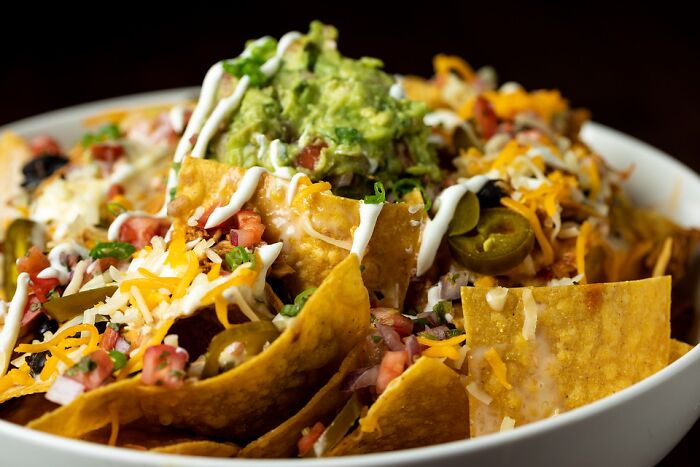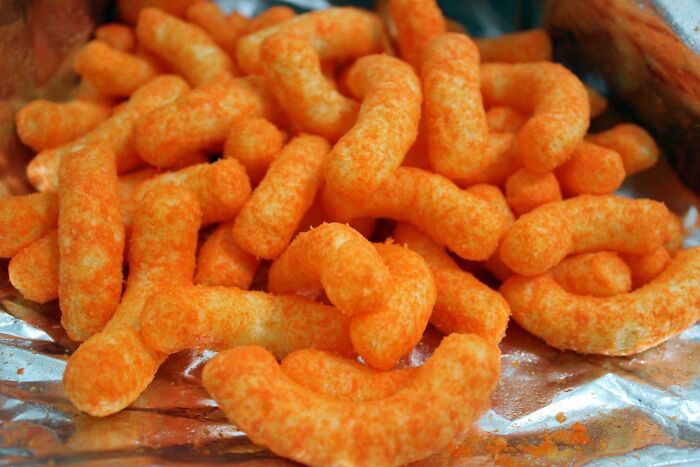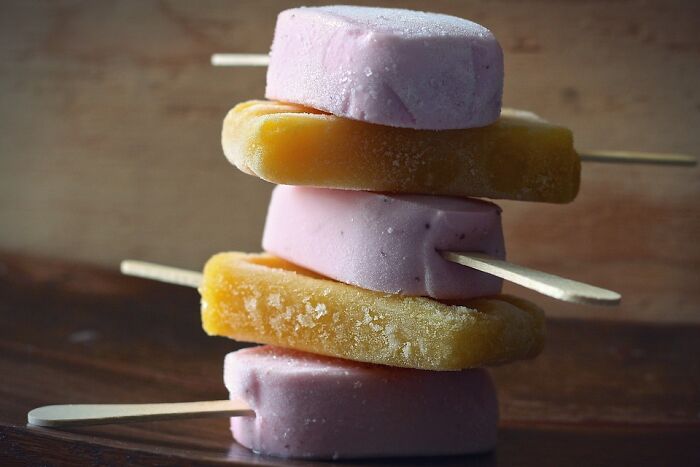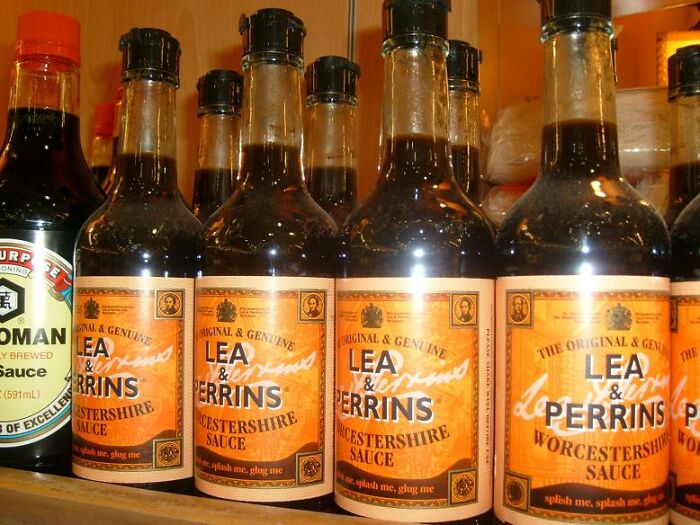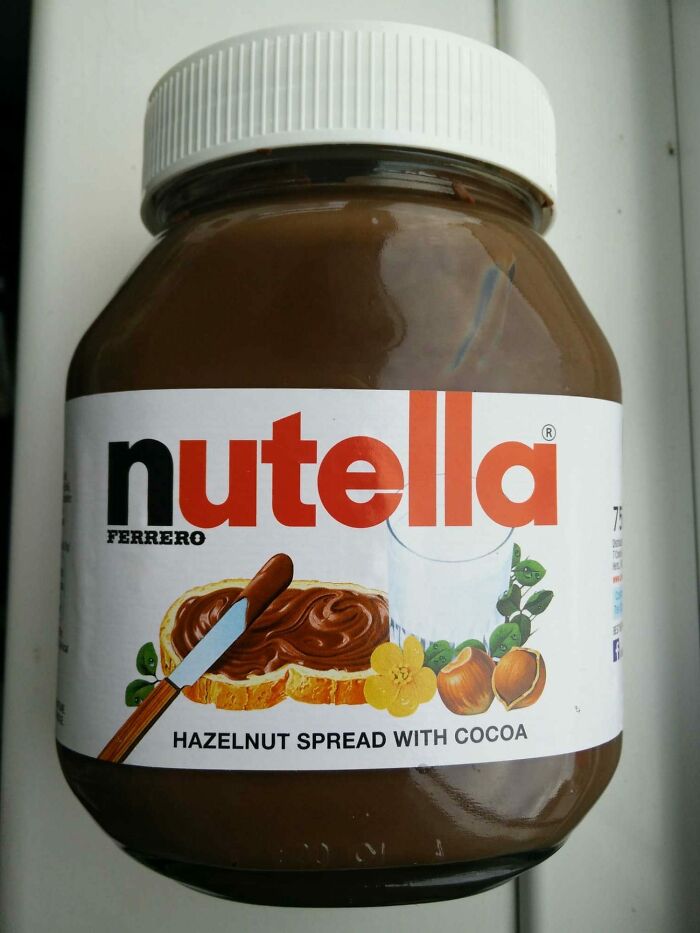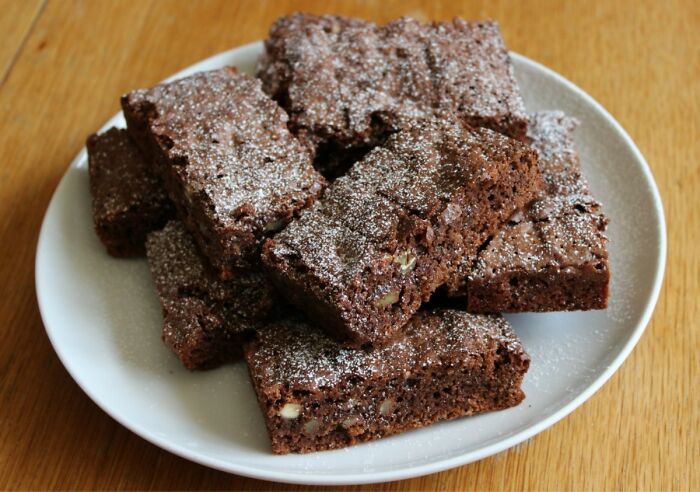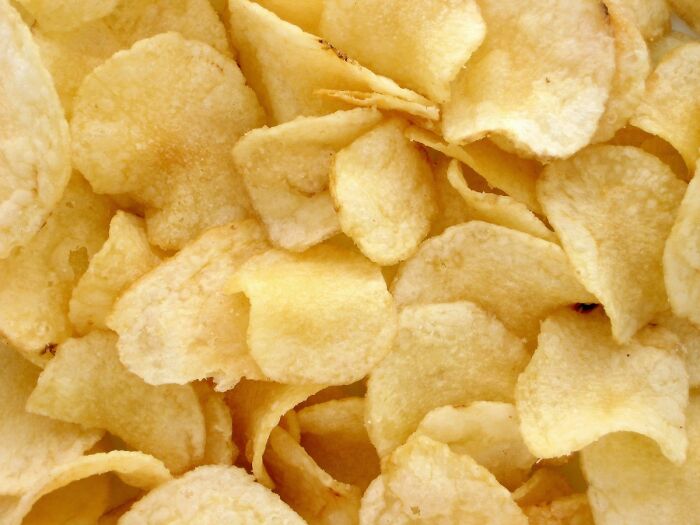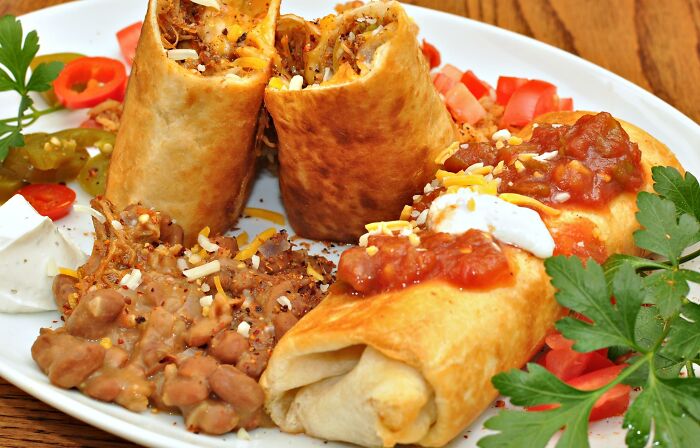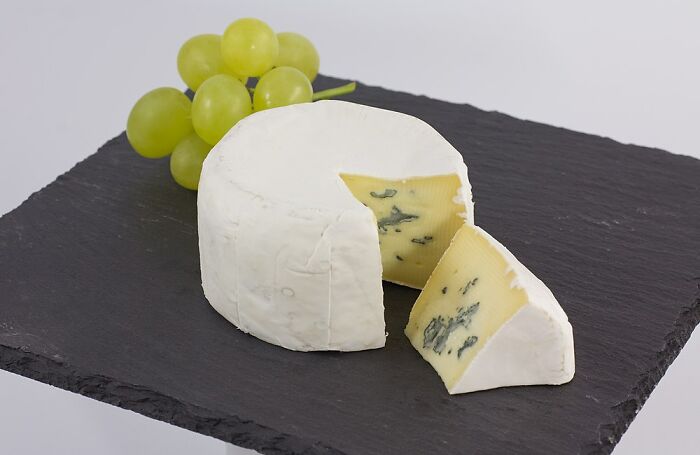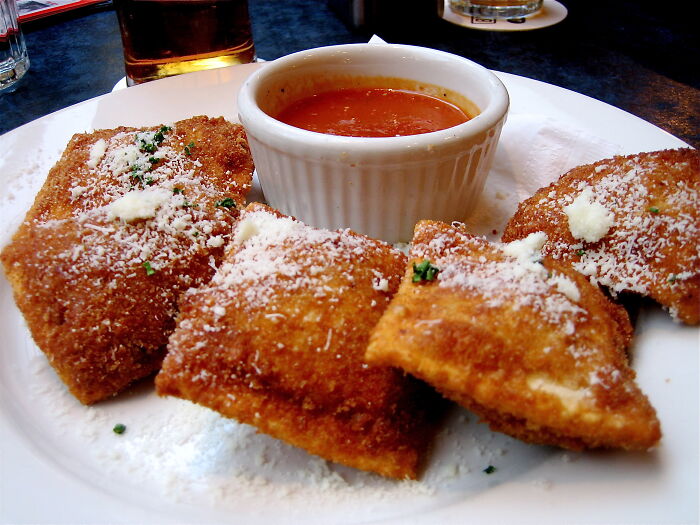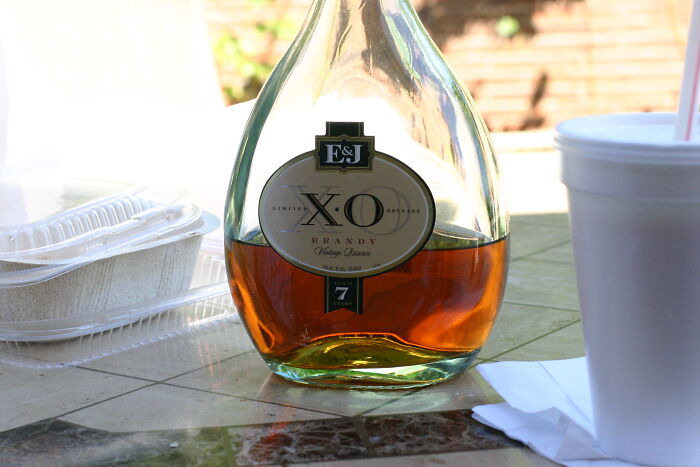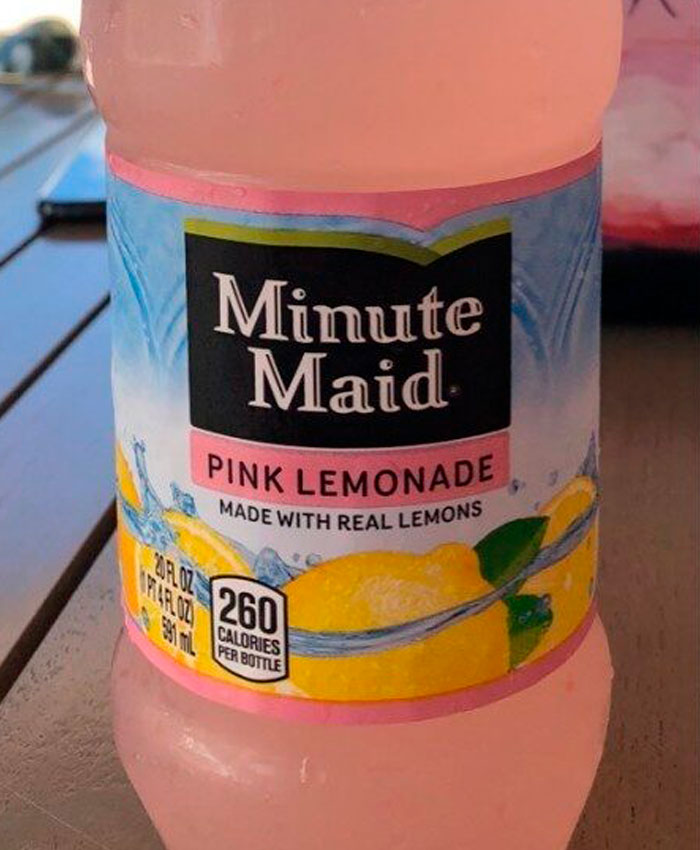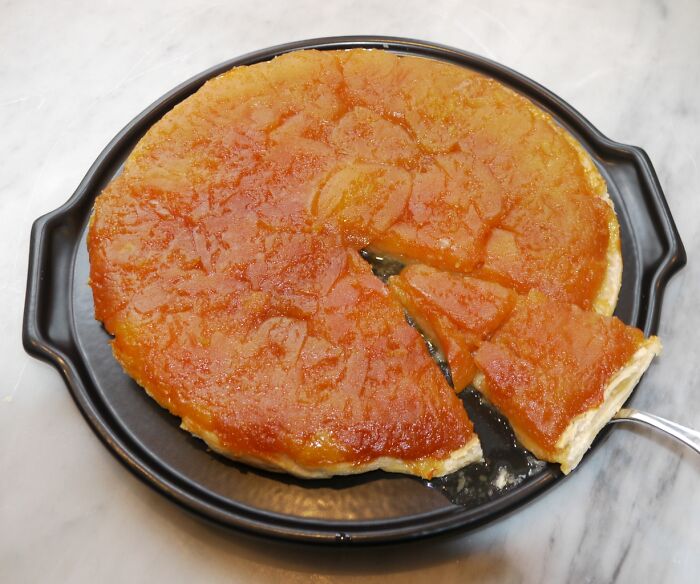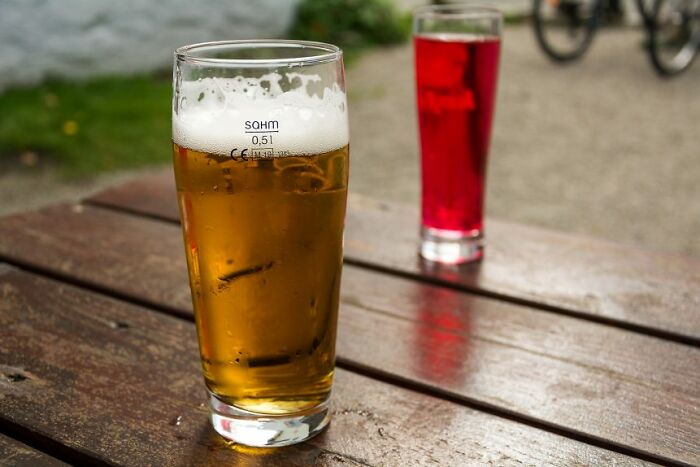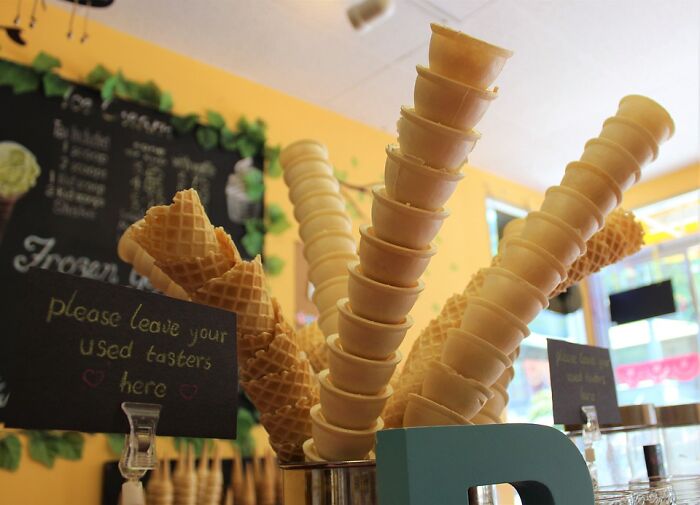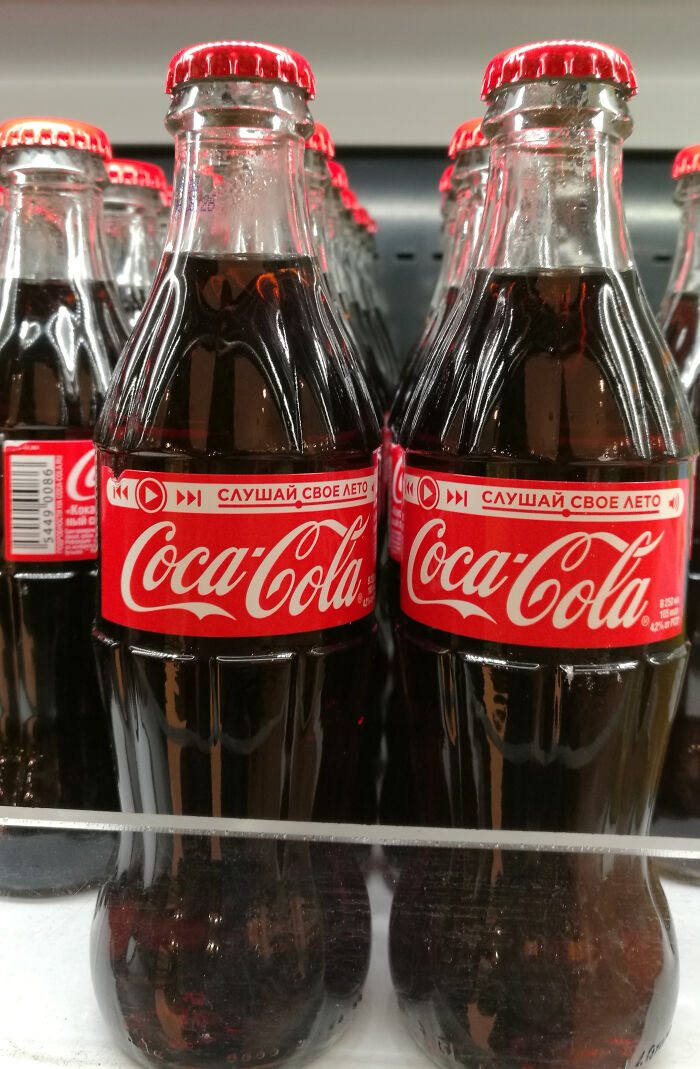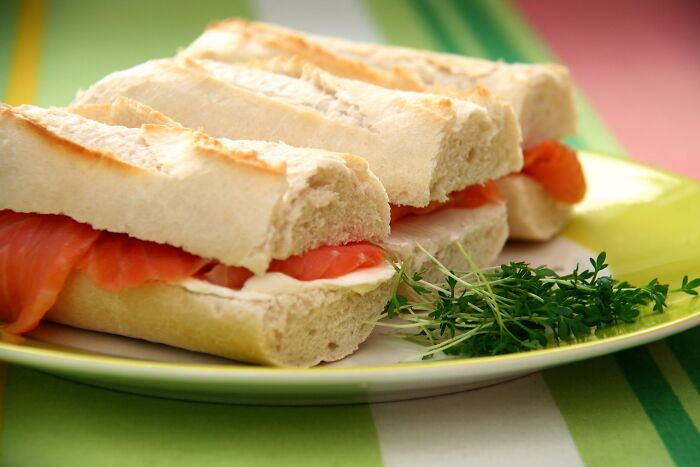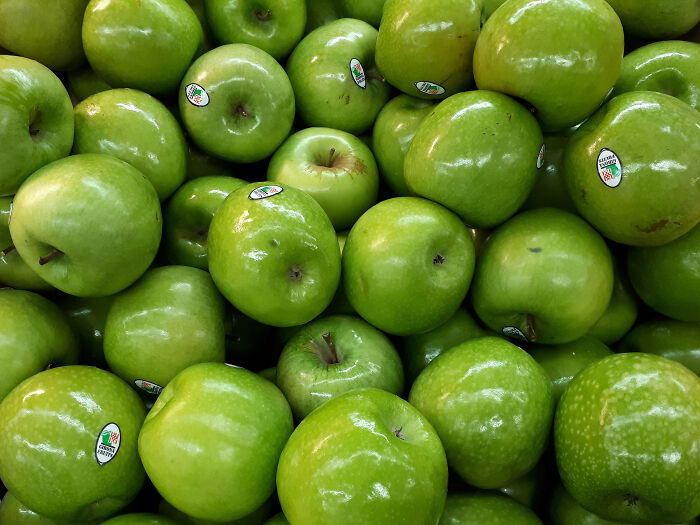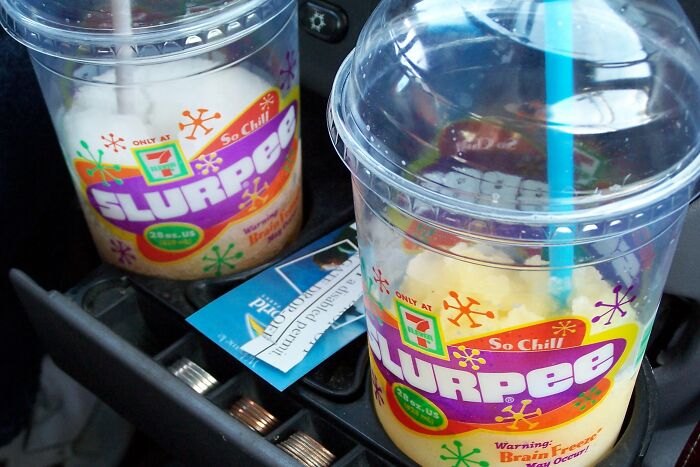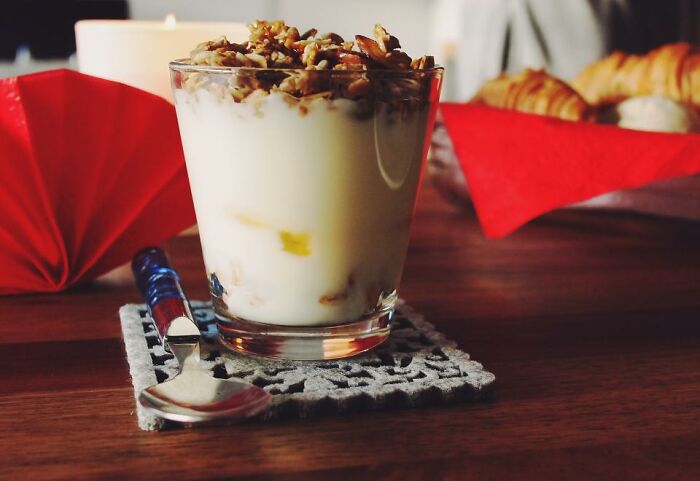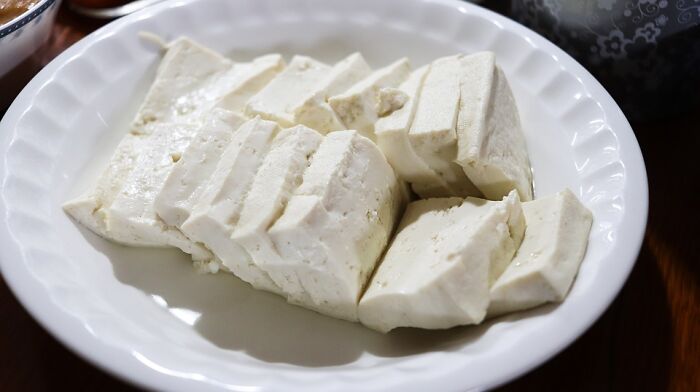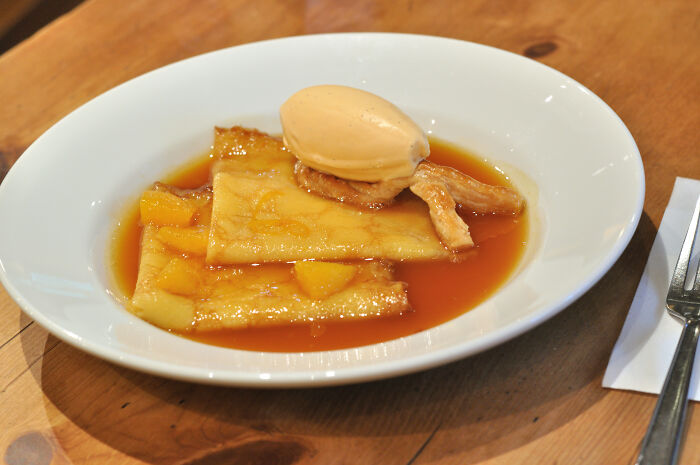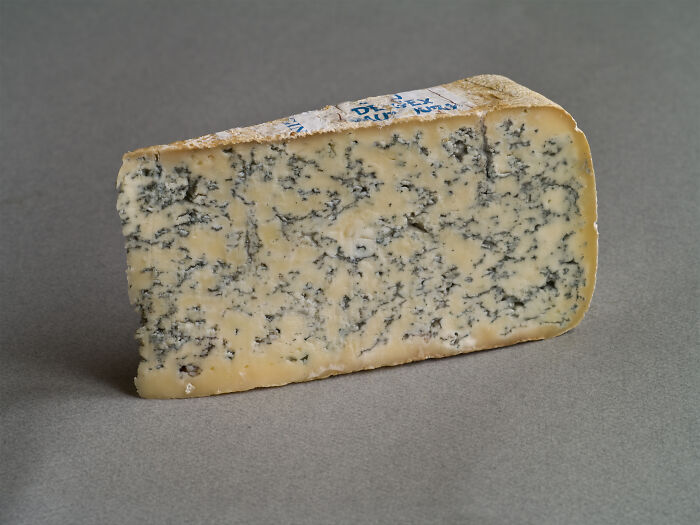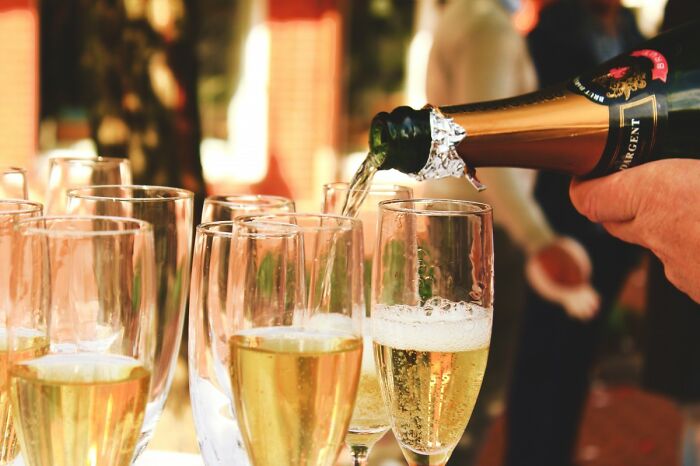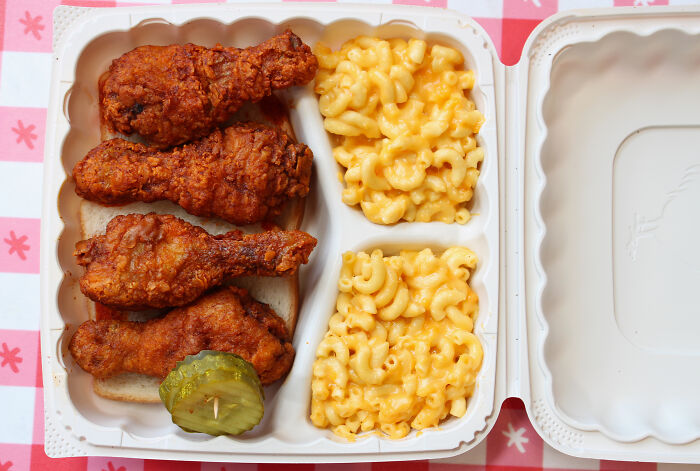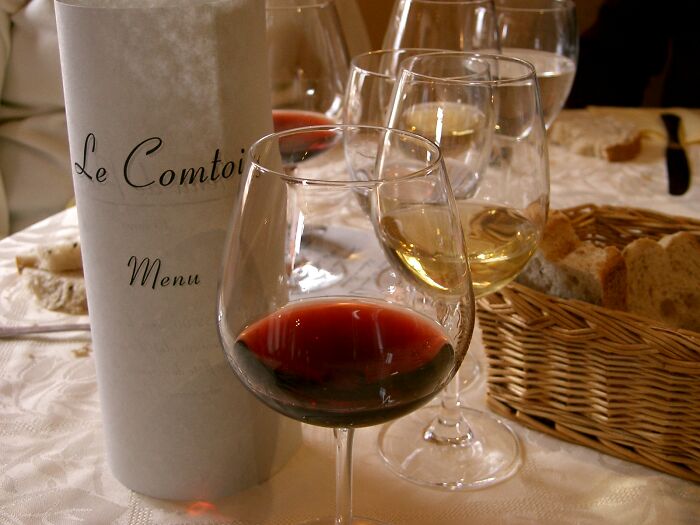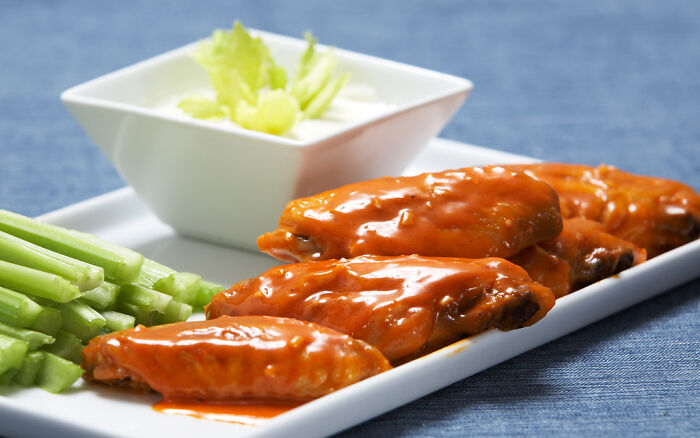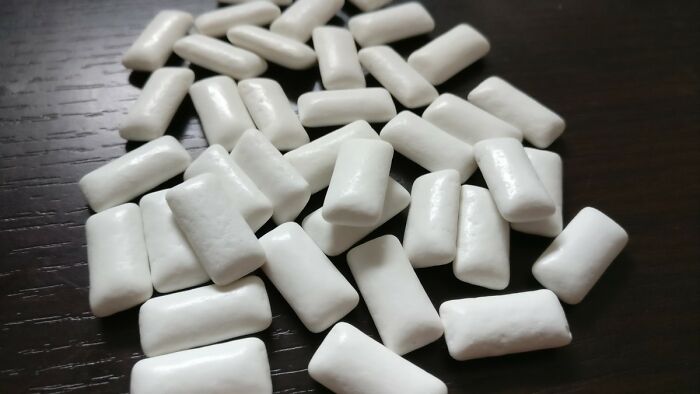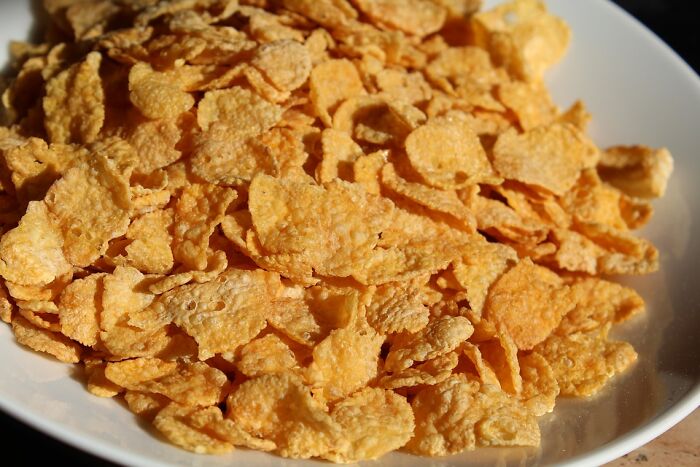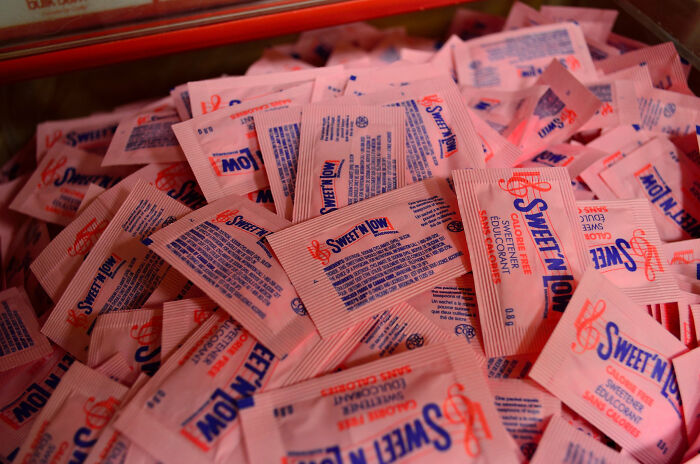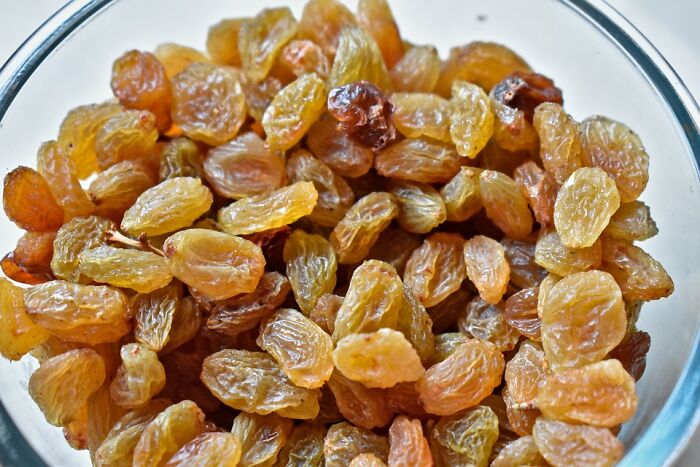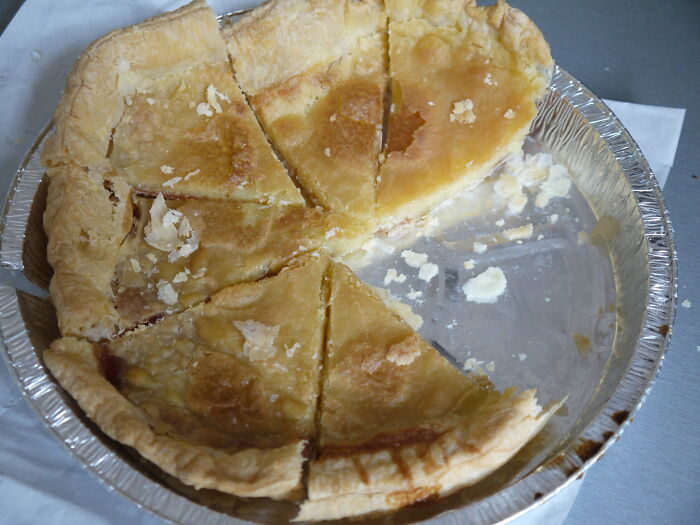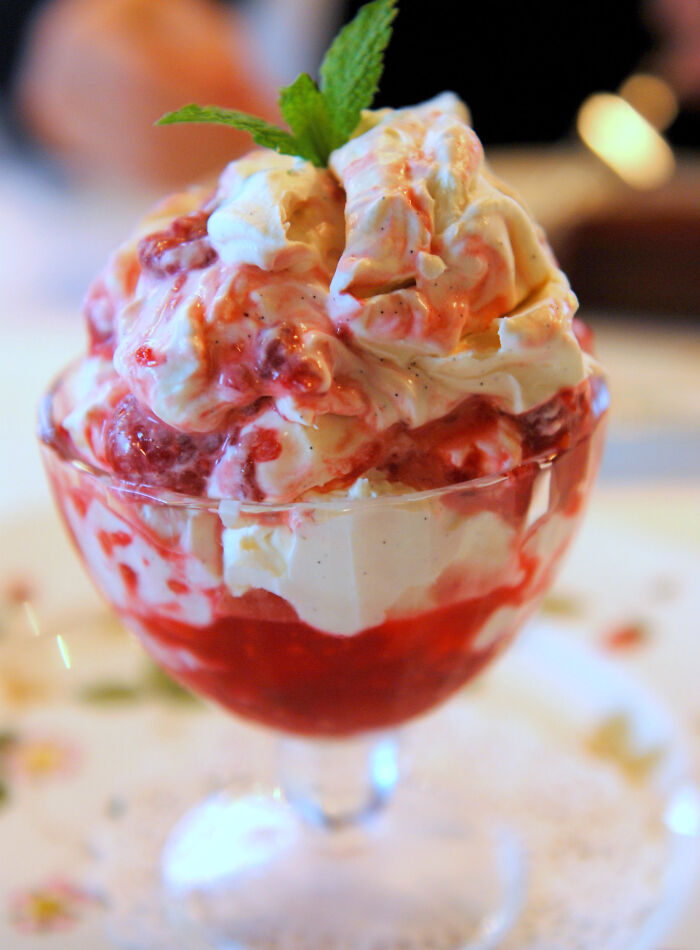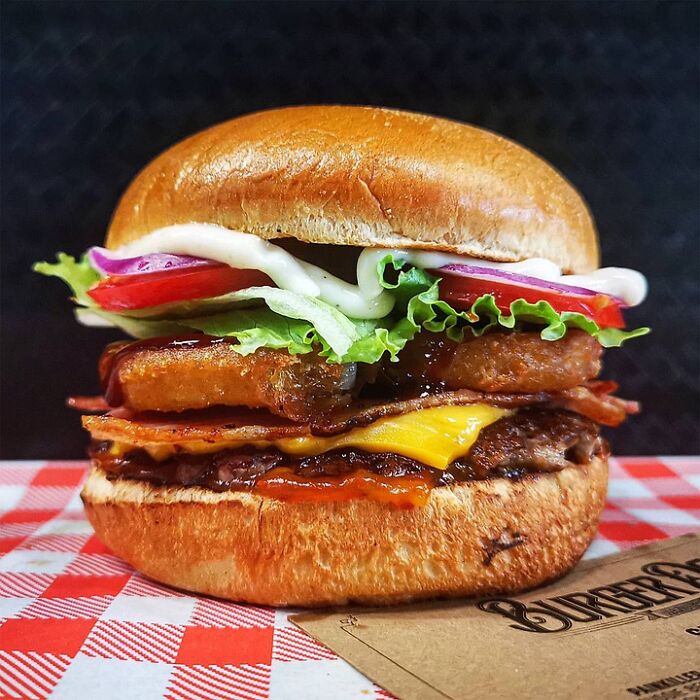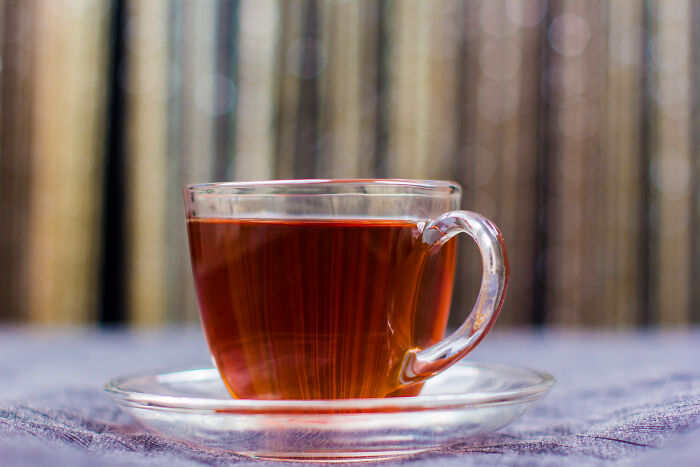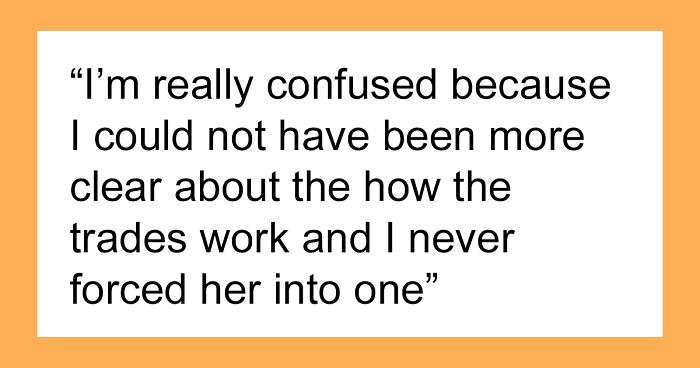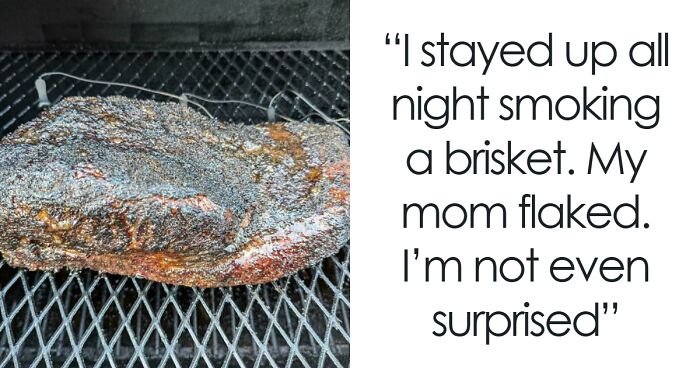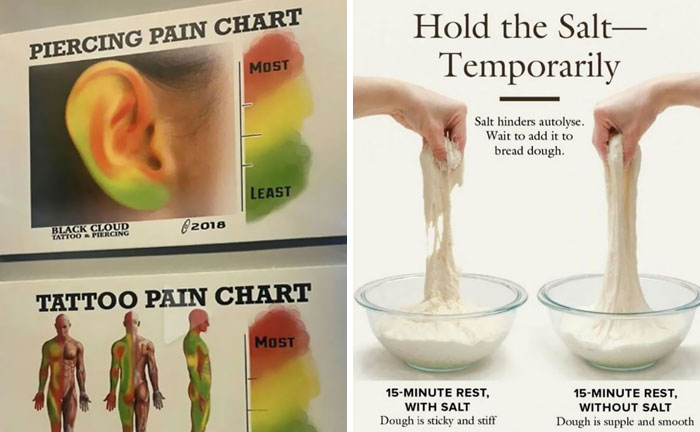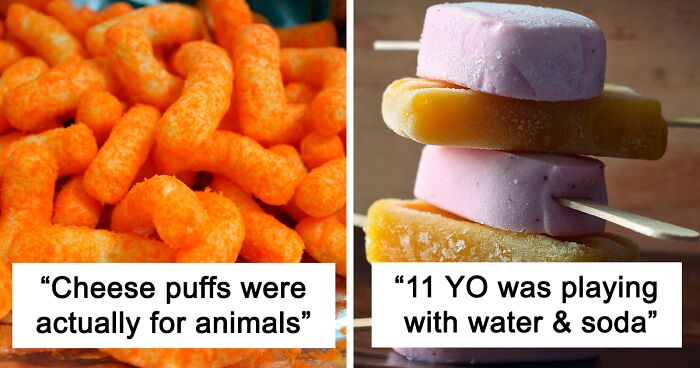
115Kviews
Here Are Popular Food And Drink Items That Were Invented By Mistake (35 Pics)
Well, who could even have guessed that absolute kitchen disasters, war shortages, and pure coincidences are to thank for some of our favorite food and drinks we have today? Whether they’re urban legends, popular myths, or happened thousands of years ago, the stories are surely funny and entertaining.
What if originally, corn flakes were the food to eat that would stop you from masturbating, pink lemonade was made out of dirty laundry water that pink tights were rinsed in, and Coke was sold as medicine that perhaps contained cocaine? Most people who set off on the journey of inventing stuff are ready to reach their goal by trial and error and are surprisingly pleased when different end results happen to spark from their concoction. And sometimes experiments are not intentional and occur simply from being in a hurry and trying to come up with the best solution possible in a particular situation, which could mean wiping up a dessert that has fallen on the floor just to realize the lucky invention of a new one.
Not all everyday heroes wear capes; also, some of the inventors have been long forgotten by history (6,000 years is quite some time) or some establishments decided to come up with their own versions, and sometimes even better ones, while claiming the fame of introducing the world to a new gastronomical specialty. Some of these foods and drinks took years to develop and perfect and some of them were simply achieved by accidentally pushing something into hot boiling oil or forgetting it outside on a freezing night.
This post may include affiliate links.
Chocolate Chip Cookies
One of the stories goes that Ruth Wakefield was baking chocolate cookies for her guests only to run out of powdered baker’s chocolate, so she decided to break up a Nestle’s semi-sweet chocolate bar. As some kitchen experiments do, it turned into a semi-disappointment as the chocolate pieces only melted slightly, retaining their shape. But the guests loved them and the next thing you know, her recipe was up in a Boston newspaper, increasing Nestle’s chocolate bar sales. The company later granted Ruth a lifetime supply of the chocolate from Andrew Nestle as a reward for printing her recipe on the chocolate bars.
Coffee
As coffee is said to originate from Ethiopia, a centuries-old legend has it that a goat herder named Kaldi noticed that his goats would become very energetic and not sleep at night after eating the berries of this particular tree. He reported this to a local monastery and soon everyone was sipping on this stimulating drink that helped them stay up during long hours of evening prayers. Soon the coffee beans reached the Arabian peninsula. Fast-forward to today, you might be reaching out for a sip of this goodness this very moment.
Nachos
An urban fairytale of how this snack was born is about Ignacio ‘Nacho’ Anaya Garcia, who was working in the kitchen in Piedras Negras (Coahuila state, Mexico) when a handful of US military wives from a nearby base passed by the restaurant for a snack. With the chef nowhere to be seen, he threw together some tortillas topped with cheese and jalapeños and named it Nachos especiales. That result became a now widely consumed dish and what would have been the 124th birthday of Nacho last year was even commemorated by a Google Doodle. Eventually, Nacho ended up opening his own restaurant.
Cheese Puffs
According to one account, cheese puffs before we came to know them were actually food for animals! Although there are several versions of the story, in the 1930s, Edward Wilson, from a company in Wisconsin producing partially cooked animal feed, decided to taste the puffed mashed corn kernel himself and by adding some seasoning, realized that it was actually not that bad and could totally make a decent snack. Later, the founders of Flakall Corporation that he worked for patented the product that is now produced under different names by over 100 companies.
Ice Popsicles
11-year-old Fran Epperson was apparently playing with his water and powdered soda mix, leaving it with the wooden stirrer inside. After he forgot the ‘experiment’ outside overnight, it froze, and as any 11-year-old would probably do, he licked it, then quickly realizing what a revolutionary invention he'd made. He began by selling ‘Epsicles’ in his neighborhood, then eventually at amusement parks. He patented his product that later changed its name to ‘Pop’sicles’ after 20 years as it was much more favored by children. However, Epperson ended up selling the business and never again making as much money as he did at the beginning of his success.
Pretty sure his children and grandchildren called them “pop’s ‘sicles” and he changed the name because of that
Worcestershire Sauce
You might not be able to pronounce it, but you most likely are using it as a condiment. This story talks about it being first made by the chemists John Wheeler Lea and William Perrins upon request by the Governor of Bengal, based on a recipe brought from Asia. They made two batches as they were quite puzzled over what was the fuss about the sauce, but they didn’t like it! Just like pretty much everything unwanted, they stored it away, only re-tasting it some time later and instantly feeling the potential of a new food item, which went on sale in 1837. However, to this very day, the original recipe hasn’t been revealed and remains a secret.
Nutella
An Italian baker, Pietro Ferrero, was actually trying to create a chocolate alternative in the 1940s as a result of shortages during the Second World War. Little did he know that hazelnuts, sugar, and just a pinch of cocoa would create a new staple sweet spread.
Chocolate Brownies
One of the most delightful baked goods originating from the US is said to have been invented by Fanny Farmer, who simply adapted her chocolate cookie to be baked in a rectangular pan. Another legend surrounding the birth of chocolate brownies talks about a chef accidentally adding melted (and too much) chocolate into the dough.
Potato Chips
Thank you South America for potatoes! But if not for a really annoyed chef, we wouldn’t be crunching on crispy potato chips (or crisps if you’re in the UK). Originally, potato chips were not meant to be enjoyed, according to Saratoga Chips, as George Crum, a chef in 1853, decided to overcook super thinly sliced potatoes when his customers kept on sending their fried potatoes back again and again, complaining that they were too thick and soggy. The original Karens were eventually so satisfied with the crunchy potato slices that they made sure to spread the word about this scrumptious snack and the chef who made it. This encouraged Crum to open his own restaurant.
100% Myth. 1) Crum was not a restaurateur, he was the chef at the Saratoga Springs Hotel. 2) The story about Crum creating it that way did not come around till long after he died. 3) We know from both Crum and his sister, that his sister invented it as a food for the kitchen staff to snack on in the kitchen. Eventually George started serving it to customers who liked it. However he took public credit for it and his sister did not get her proper due to till years after they both died. But the story mentioned above is a long debunked myth and 100% false.
Chimichangas
A popular Mexican-American fusion is a large, deep-fried burrito and Tucson, Arizona claims its fame. Historically being a part of Sonora state, Mexico, people seem to take this soul food very seriously and one story is told about Monica Flin from El Charro Cafe in 1922 accidentally flipping a burrito into the deep fryer - obviously wanting to swear, but not allowing herself to do that in front of her nieces, she yelled ‘chimichanga’ instead and that’s how the mouth-watering dish was born.
Hawaiian Pizza
As some pizza lovers would say that putting pineapple on it is a joke, they are kinda right, as it was actually invented while having fun. Two brothers that emigrated to Canada from Greece in the '50s were experimenting with different ingredients at their restaurant when one of them, Sam Panopolous, thought of throwing in some ham and pineapple to see how it would taste. Surely they had no clue that over the years, this topping would divide people when it comes to choosing the toppings.
Cheese
While one may never know the true story of the invention of this food item, IDFA tells us that cheese dates back more than 4,000 years and has a popular legend of an Arabian merchant accidentally making it first. As he set out on a long journey across a desert, he had a supply of milk in a sheep’s stomach pouch. Due to blasting heat and the enzymes in the pouch, it cured the cheese and separated the whey. The traveler was able to not only quench his thirst, but also enjoy the cheese (curd). It was the travelers that brought the art of cheesemaking from Asia to Europe and we can now go crazy making platters of this food item to thrill our guests.
That legend is less than 1000 years old and not take seriously by an Scholars. We have ZERO clue to the origins of Cheese as it exists all over the world. The oldest evidence is from a dig in Poland from 5000 BCE, and the oldest cheese found is from a Tomb of a Nobleman during Hamenhoreb's rule in Egypt at the end of the 18th Dynasty (long before Arabs reached Egypt), the oldest Cheese residue is in a dig from the Uygurs from 4500 years ago. We don't know where is started, it is assumed by accident, but who knows. Sorry, this is 100% False
Toasted Ravioli
St Louis can’t agree on which restaurant exactly was in charge of inventing this local specialty, but as the legend has it, it was invented by a German cook who had too much wine while cooking (hands up, who can relate?) and accidentally put some ravioli in the fryer. He sent out the food to the table regardless, topping it up with some parmesan - and guess what - they loved it!
Brandy
Supposedly, brandy was made in order to fortify wine so that it could make it through long, sometimes intercontinental voyages. As it would be stored in wooden casks, it resulted in improving the original distilled spirit and made it more drinkable, later evolving into a drink of its own.
To fortify the wine, but also to make it "smaller" - i.e. more concentrated. The expectation was that it would be diluted after shipping, but people just drank it as it was.
Pink Lemonade
When you think of summer, you can definitely think of pink lemonade! And would you ever think that dirty laundry was behind its invention? Although pink lemons do exist, their juice is colorless and one of the numerous versions tells us why this particular lemonade was pink. In 1857, Pete Conklin was selling lemonade at the circus when he ran out of water and grabbed a tub of dirty water where a performer had just rinsed her pink-colored tights. He sold it as this new ‘strawberry lemonade,’ and since then, circuses have had ‘pink lemonade’ available to quench your thirst, hopefully reducing the percentage of dirty sock water.
J. Cole, to this day, we have no idea what are we eating or drinking: artificial flavor, artificial colors, artificial sweeteners ....... and all other "natural" flavors.
Load More Replies...This sounds like total b.s. to me. I cannot imagine any pair of tights weighing only a few grams) giving off this much pink colour after being worn. The woman's legs would have been dyed pink as well. And did tights even exist in those days?
I would believe it. If you had used a vegetable dye (eg beetroot) without 'fixing' it, then it will run every time you wash it.
Load More Replies...I heard another version of this story where the seller had like cinnamon gum or something (all I know is that it was cinnamon) and they knocked it into the pitcher accidentally. I prefer that version :)
https://www.smithsonianmag.com/history/unusual-origins-pink-lemonade-180960145/
I actually have a glass of pink lemonade sitting beside me... I am starting to question my life choices
Load More Replies...Well, I wouldn't put too much credence in the tights story. More likely someone added some leftover red juice to the lemonade, or perhaps some cut up strawberries that tinted the drink.
What a ludicrous story, who would happily suck down a glass of laundry water and throw a massive fit at the vendor?
Why do people just believe what they read on BP??? LOL!!! "Now I hate pink lemonade!" Really? Here's another story... Henry E. Allott , a Chicago native who ran away to the circus in his early teens, is believed to have 'invented' pink lemonade after accidentally dropping red-colored cinnamon candies in a vat of traditional lemonade.
Tarte Tatin
One of the stories is that Hotel Tatin, 100 miles south from Paris, run by two sisters, was the birthplace of the famous pastry. One of the sisters, Stephanie Tatin, was so tired that she overcooked apples in butter and sugar though they were meant to be for a traditional apple pie. She smelled apples burning in the pan and covered it with a pastry base, then crammed it inside the oven. Stephanie decided to serve the apple pie regardless, making it a pure success among the guests.
Beer
This time, it could be thanks to the Mesopotamians 6,000 years ago being very annoyed by the fact that the grains they’d been storing for producing bread would go damp and start to ferment into liquid affected by the loose yeast in the air. Soon, they realized that there was no point in ignoring the potential of making what is now one of the oldest drinks humans have ever produced. The oldest evidence of beer's existence shows people sipping this drink through red straws out of a giant communal bowl. Party on.
Except the Mesopotamians made Date Beer, not grain beer, not until much later did they switch to grain. Further 7000 years ago we have beer in ancient Egypt already. However the oldest evidence of brewing a drink like beer comes from 10,000 years ago in China. We actually have ZERO evidence why it was created, or how. But the most common theory is it can from watching fruits rot and ferment and later they figured how to create that affect on their own and then later used it as a way to deal with excess grain. Sorry this is fake.
Waffle Cones
We probably wouldn’t have a choice of what to get our ice cream served in - a cone or a cup - if not for a Syrian pastry vendor Ernest A. Hamwi at the 1904 St. Louis World’s Fair, among many different stories. And although Italo Marchiony was granted a patent for inviting his ice cream cone in December 1903 in NYC, Hamwi’s invention was a pure brainchild made in a hurry. An ice cream seller in the booth next door to him ran out of dishes to serve the ice cream on, so Hamwi quickly rolled up one of his freshly baked waffle-like pastries that cooled down in a second and placed the ice cream on top. The customers couldn’t have been happier and this became solid proof that necessity is the mother of invention.
This is a myth, oldest know of what we call a cone like that was from the 1880's created by Agnus Marshall. Further Valvona-Marchiony Company was already making them in 1903. As to the 1904 St. Louis World’s Fair, four venders at that event sold "waffle cornucopia filled with ice cream" and it was not a on the spur thing, rather it was a pre-made mold that was used and was pre-planned item. In fact it resulted in a lawsuit at the time, which was settled in court. We have a lot of documentation on this. The Ernest Hamwi story did not even first appear until the 1943 by his son, long after this was popular. Further there are multiple earlier claims from that very fair inclduing Abe Doumar, David Avayou, the Kabbaz brothers, or the Menches brothers. Interesting Hamwi name does not appear in any of the Vendor records, and there is zero evidence he was at the fair. Hamwi did not even get involved in the Icecream cone buisness until 1913, Doumar was already claming credit in newpapers
Coke
Apparently, Coca Cola was meant to be a medicine when John Pemberton invented it back in 1885 in Atlanta, Georgia. He marketed it as ‘brain tonic and intellectual beverage,’ keeping the recipe a secret, but not hiding the fact that it contained cocaine extracted from the coca leaf and caffeine from kola nuts (hence the name Coca Cola). And it was during Prohibition that it became popular as a ‘soft’ drink as people enjoyed the taste of it, without the added cocaine, of course.
Sandwich
Being one of the most comfortable food items to consume anywhere and anyhow no matter the situation, the sandwich appears to have been invented by an intense gambler, John Montagu, in 1762. Being noble 4th Earl of Sandwich and having a great addiction to gambling, he ordered his cook to prepare something to eat so that he wouldn’t have to leave the game in order to eat something. The unidentified cook came up with putting some beef in between toasted bread and the rest is history.
Granny Smith Apples
Supposedly it was Maria Ann Smith, who arrived in Australia in the 1830s, who bought too much fruit and it went bad, so she ended up tossing them by the creek close to her property. And although it was French Crabapples that she bought, she noticed that the fruit that grew on the new trees was very different. She patented it and it soon became the most popular cooking apple in the country.
In primary schools around the area where "Granny" Smith first grew the green apples were taught that she threw supposedly rotten french crab apple cores at her compost pile outside of her kitchen windowsill, but I'm not too sure about its credibility. We still celebrate the Granny Smith Festival with lots of apples every year!!!
Slurpee
A drink that was even featured in President Obama’s joke (‘Slurpee Summit’) is said to have been invented by accident. Omar Knedlik, an owner of an old Dairy Queen, was improvising after his soda fountain broke and he left the soda bottles in the freezer to stay cool. However, they turned quite slushy, which customers actually loved! He built a machine that would produce a slushy soda drink by mixing some carbon dioxide, water and flavorings. He patented the machine, holding a competition for the name, and soon, ICEE started to be sold to convince stores. It wasn’t until 7-Eleven that the new name Slurpee came about to make it specific to this chain of shops. It was meant to describe the sound made while drinking it through a straw.
The last and only time I accidentally left a glass bottle of Coke in the freezer it exploded. I’ve still got Coke coloured ice in the freezer because being a slob, which I’ve trained very hard for, I haven’t defrosted it yet.
Yoghurt
It's apparently thanks to the herdsmen in Central Asia who stored goat’s milk in containers made out of different animal stomachs 8,000 years ago that the substance would curdle and the fermenting of good bacteria would add this tart flavor to it and preserve it. This way, you can imagine what Genghis Khan would potentially have had for breakfast.
Tofu
Thanks to myths and the clumsiness of this cook in ancient China accidentally mixing this natural coagulant called nigari into soybean milk, the ancient Chinese began to make tofu - bean curd - a food item particularly enjoyed by anyone preferring plant-based meals. Although it started in China 2,000 years ago, tofu only reached western kitchens in the 20th century.
I've never heard this story. The one I was told (I'm SE Asian) was that a soybean slurry was mixed with sea salt that had impurities that made it curdle. Still accidental, bt this is another item where the discovery is not fully known so you only get passed down stories and myths.
Crepes Suzette
In his biography, Henri Charpentier claims accidentally inventing crêpes Suzette in 1895 at the age of 14, serving no one else but the Prince of Wales, who later became King Edward VII. Henri was working in front of a chafing dish and the cordials accidentally caught on fire, setting the crepes ablaze. The young boy didn’t want The Prince to wait, so he served the dish anyway. The Prince liked it so much that he even requested that the now quite well-known dessert be named after a lady who was present that day.
Blue Cheese
It’s not hard to believe that it was simply a forgotten cheese! In the 7th century, a scatterbrained shepherd in the village of Roquefort, France, forgot his lunch in a cave. He returned several months later to the same cave only to find the cheese infested with penicillium roqueforti, a mold that was growing there. Nowadays, the natural mold culture is simply added to the cheese milk.
That shepherd was either brave or very, very hungry think thatbthis forgotten mess was palatable. Or maybe he ate it on a dare.
Champagne
A complete coincidence was that wine makers in France’s Champagne region wanted to compete with Burgundy wines. However, the cold winters in the region would cause the wine to stop fermenting and resume the process in the spring, when the yeast would come alive and start fermenting only to release carbon dioxide gas that would pop the weak bottles. By adjusting the glassware accordingly, winemakers managed to keep the bottles intact and today, we have something bubbly to drink on NYE!
Nashville Hot Chicken
Although revenge is a dish served cold, in this case, it was meant to fire up Thornton Prince III's mouth after his girlfriend at that time was angry upon learning about his late-night adventures with other women. She prepared him a fried chicken breast for breakfast with an extreme amount of pepper. But Thornton liked it so much that in the mid-1930s, he opened his BBQ Chicken Shack cafe, serving his own recipe inspired by the event.
Fortified Wine
Seems that on long sea voyages circumnavigating the globe due to growing trade in the 16th and 17th century, European wines weren’t able to remain unspoiled. The clever winemakers fortified the wine by adding brandy to stabilize it and preparing it to withstand the temperature differences.
Buffalo Wings
Mouth-watering chicken wings served with a side of blue cheese sauce and celery sticks? Yes please. One out of at least two different versions claims that at The Anchor Bar, situated in Buffalo, NY, Teresa Bellismo received a shipment of chicken wings and not the chicken necks she thought she'd ordered initially - nothing went to waste and she fried them up and tossed them in her signature sauce.
Chewing Gum
Although chewing gum was around the Mayas and Aztecs as chicle, a natural rubbery substance extracted from sapodilla trees in Mexico and Central America, it wasn’t until Thomas Adams Sr. got a supply of chicle through an exiled Mexican President that he tried to convert the chicle to some useful industrial substance, only to notice that when boiled and formed into pieces, it sold better as a chewing gum.
Corn Flakes
This is a serious one, as originally, upon their invention, corn flakes were said to be a part of food diet that potentially suppressed masturbation and sexual desire. Two brothers. Dr. John Harvey Kellogg and Will Keith ‘WK’ Kellogg, in their health spa and sanitarium, being strict Seventh-Day Adventists, propagated vegetarianism and were constantly coming up with new recipes for the most bland food possible - no seasoning and no meats involved were supposed to reduce clients' desire for sex and, of course, stop the need for the ‘self - pollution’ of masturbation. They left boiled wheat for too long and as it came out in flakes that they then simply toasted. Later experimenting with other grains, they came up with the corn flakes that were soon favorites of famous sanitarium guests such as Amelia Earhart, Henry Ford, Mary Todd Lincoln, and others. To this day, Kellogg’s brand is probably the most famous one, fetching the company over $13 billion in 2015 alone.
While part of this is true, a huge part is fake. This had ZERO to do with masturbation or anything connected to that. That was a later myth. They did advocate against masturbation and non-procreation sexual desires, but that was 100% separate from Corn Flakes. This came about as they were part of a movement called "Muscular Christianity" which part of it was eating limited processed grains and red meats for men to promote masculinity. In fact they did not promote Vegetarianism at all. Kellog himself wrote about the benefits of men eating rare cooked red meats. So sorry, another myth that is popular, but 100% fake and not accepted by historians.
Artificial Sweetener
Constantin Fahlberg, a chemist at Johns Hopkins University in 1879, probably forgot to wash his hands upon returning home after work and noticed a sweet taste on some part of his palm. It was connected to overboiled sulfobenzoic acid, phosphorus chloride, and ammonia - Constantin tested the compound and, upon returning to Germany, started producing artificial sweetener: Saccharin.
Hmmm... my hands have chemicals on them from the lab.... i wonder what they taste like...
Raisins
Who would have thought that raisins were originally used as a decoration around 2000 BC by inhabitants in the Mediterranean? It probably took over a thousand years for people to put a dried grape in their mouth and realize that perhaps it was ok to use them dried as well as cultivating them for winemaking.
How do we know they were merely decoration at first? Humans tend to eat anything that's edible in their environment, so... I kind of doubt it...
Bakewell Pudding
These are entertaining but I know that some of them are not correct which leads my to doubt all of them.
The title is wrong. Read the stories. Most of these were invented intentionally.
Thanks Dave P for all the interesting and (I assume) more correct stories :)
The title needs a rewrite: so many of these were not accidents, but totally intentional (if we are to believe the story, which is dubious)
It is astounding how Bored Panda allow articles like this to be published when there has been ZERO fact-Checking done!! So many of these are false.
Traditionally Danish dessert for Christmas: ris a la mande. Not, as the name suggests, originated in France, but actually a Danish invention. A chef was surprised by some late visitors after hours. All he had in the pantry was some rice pudding, cream and almonds. He whipped the cream and mixed with the pudding and added the almonds. Tpday there is lots of chopped almonds in the dish, but only one that's whole. The one who gets it wins an extra gift.
Evidently, everything we eat and drink......was an accident! That's life.
One of my mum's uncles invented "Pig Vim" for his prize winning pigs (his hobby). It's been sold for years as Bemax (for humans)
Usually I click on the "this post originally had xxx posts....", but this time I declined, as there were just too many fake and wrong posts.
I'd recommend taking most if not all of these stories with a generous grain of salt.
These are entertaining but I know that some of them are not correct which leads my to doubt all of them.
The title is wrong. Read the stories. Most of these were invented intentionally.
Thanks Dave P for all the interesting and (I assume) more correct stories :)
The title needs a rewrite: so many of these were not accidents, but totally intentional (if we are to believe the story, which is dubious)
It is astounding how Bored Panda allow articles like this to be published when there has been ZERO fact-Checking done!! So many of these are false.
Traditionally Danish dessert for Christmas: ris a la mande. Not, as the name suggests, originated in France, but actually a Danish invention. A chef was surprised by some late visitors after hours. All he had in the pantry was some rice pudding, cream and almonds. He whipped the cream and mixed with the pudding and added the almonds. Tpday there is lots of chopped almonds in the dish, but only one that's whole. The one who gets it wins an extra gift.
Evidently, everything we eat and drink......was an accident! That's life.
One of my mum's uncles invented "Pig Vim" for his prize winning pigs (his hobby). It's been sold for years as Bemax (for humans)
Usually I click on the "this post originally had xxx posts....", but this time I declined, as there were just too many fake and wrong posts.
I'd recommend taking most if not all of these stories with a generous grain of salt.

 Dark Mode
Dark Mode 

 No fees, cancel anytime
No fees, cancel anytime 












